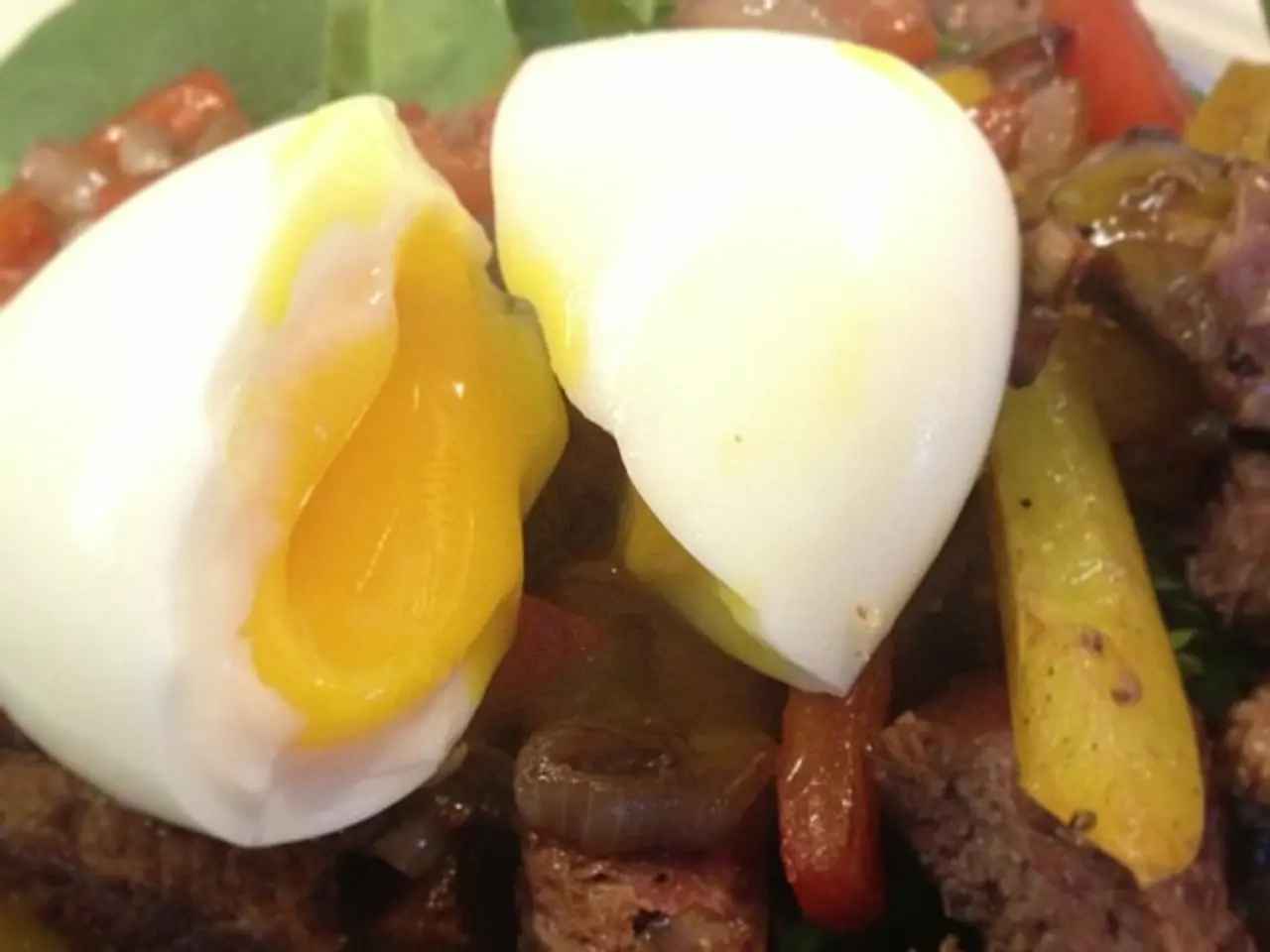Inquire About the Possibility of Making an Egg Float
In an exciting home science experiment, a group of children embarked on a quest to make an egg float in water. Inspired by Asia Citro's book, "The Curious Kid's Science Book", they decided to add various kitchen ingredients such as oil, salt, water, coffee, and sugar to their water.
The children began by adding oil to their cups, hoping it would help the egg float. Unfortunately, the oil did not have the desired effect, and the egg continued to sink. Next, they tried salt and sugar, both of which increased the water's density, causing the egg to float to the top of the glass.
This experiment, designed to help children develop critical thinking and problem-solving skills, proved to be a valuable learning experience. Not only did it teach them about density and buoyancy, but it also empowered them as learners when they realised they could figure out answers on their own.
The children were also encouraged to think creatively and test different ideas. For instance, they correctly predicted that coffee would not make the egg float, just like oil. This experiment showed them that making predictions and testing them is an essential part of the scientific process.
Teaching kids to think like scientists is a valuable skill for success in school and life. Experiments like the floating egg not only make learning fun but also help children develop the critical thinking and problem-solving skills they need to excel.
If you're looking for more science experiments for kids, "The Curious Kid's Science Book" is a valuable resource. It's filled with engaging and educational projects that encourage critical thinking and creativity. Additionally, the Super Cool Science Experiments for Kids page offers a wealth of other exciting experiments for young scientists.
Even while waiting for "The Curious Kid's Science Book", children can keep their minds active with The Conversation Heart Candy Science Experiments. These experiments are designed to encourage critical thinking and are a fun way to pass the time.
In conclusion, the floating egg experiment is a fantastic way to engage children in science and help them learn in a fun and interactive way. By encouraging curiosity, creativity, and critical thinking, we can inspire the next generation of scientists.
Science, being an integral part of education-and-self-development and learning, can be fostered through engaging experiments like the floating egg. This experiment, derived from Asia Citro's book "The Curious Kid's Science Book", not only provides enjoyable science experiments for kids but also promotes critical thinking and creativity.




